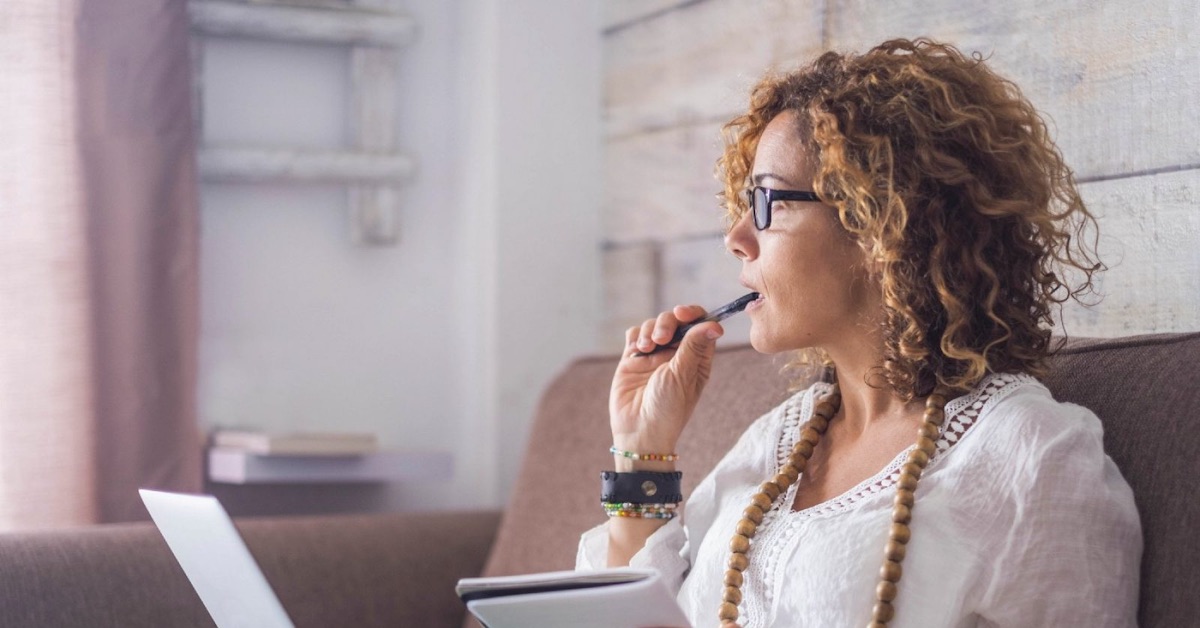Provider Spotlight: Sara Makin, Founder, Makin Wellness

Quartet Health
July 15, 2020
Sara Makin, M.S.Ed., NCC, LPC, is the founder of Makin Wellness in Pittsburgh, Pennsylvania and part of the Quartet network since 2018. Quartet spoke to Sara about adjusting to the new normal, changes in her practice and her best advice for other providers.
Quartet Health: As a provider, how are you doing during this time?
Sara Makin: My team and I have definitely doubled down on our self-care efforts. Personally, I love to walk, love to exercise, I love my Peloton bike, spending time with my fiancé, and I’ve been reading a lot as well. I’m doing my best to take care of myself and whenever I’m done seeing clients, truly being finished [for the day].
[Our providers] have done a really great job at communicating with our intake team about our availability. If a patient is in an emergency situation, we can definitely see them, but it’s important to be done whenever you can be. It’s easy to get lost in the world of practicing that you’re working 12-13 hours a day, not really eating… So having firm boundaries is very important.
QH: Was that something that came easy to you?
SM: With myself and our practice, we’ve always had a huge emphasis on provider self-care. If you don’t, in the world of behavioral health or healthcare in general, it can be very easy to burn out. If you’re burnt out, what good are you doing for your patient? If you’re not happy or mentally stable within yourself, how can you help someone else achieve that goal? So it’s been something that we’ve always been very intentional about. After a couple of weeks [of the pandemic], I started noticing that it was time to slow down a bit, for sure.
QH: How has the pandemic affected your practice?
SM: When the order was given out that all non-essential businesses had to shut, we were very fortunate, because we kind of saw it coming. We had converted everything to virtual visits before, so we had the administrative staff and the marketing support to get all that information out there.
It was a big transition – we totally changed our website, our marketing efforts, and advertising campaigns. We still see a lot of clients, and we’re noticing more phone calls for first-time patients and that a lot of people are missing that human connection. We’re very lucky – even though we were only founded two years ago, we’ve grown so quickly that we’ve been able to have the resources and support to make this shift to virtual.
QH: Two years – that’s very impressive!
SM: Yeah, we’re very new. But also, Quartet’s been a huge proponent of that. To be able to get really high-quality referrals for people that want help, and to be able to coordinate care with a PCP is amazing, because a lot of the time, they have information that we don’t have, and vice versa. So it’s really helpful!
QH: How did your patients react to the transition?
SM: The majority of them understood, because their workplaces were doing a very similar thing. A lot of people had questions about the efficacy of the treatment, and wanted to be reaffirmed that they were still going to receive an evidence-based, high-quality level of care that they knew to enjoy. So they were concerned about that, and also about privacy and security.
So once we shared more information about those things and answered their questions, the vast majority of people were very excited. Now, a lot are preferring virtual visits because they don’t have to drive to our offices, they don’t have to pay for parking, it takes a lot less time out of their day and they’re seeing that they’re still benefitting. It’s important to note that we do service a younger demographic, our clients mostly range from 19 to their mid-forties, so they’re more receptive. However, even though we’ve provided a lot of education about virtual visits, we’ve had some people still preferring an office.
QH: What are the most common conditions that are arising in your patients?
SM: A lot of different things. Our EHR showed a new report the other day saying that behavioral health claims have increased by about 25 percent since April 2020, so a lot of people are definitely seeking help and feeling very stressed out right now. We’ve noticed huge stress reactions and depressive disorders. Staying inside is extremely stressful, especially if you’re not used to being ordered to stay indoors. A lot of people were initially very stressed out about their jobs, and anxious about what’s going to happen with them being at home with their kids all the time. It can also be very challenging being in recovery and being an addict alone at this time. It’s very high-risk.
Everyone has such a different story, though. We’ve had some clients somehow really thrive during this time and pivot themselves. We’ve had some patients that were so stressed out with work, who now have a better balance because they’re not taking a long commute in and just have more time.
QH: What have you found the hardest during this time?
SM: The most challenging thing was figuring out what was going on with the payers. Not all the insurance plans were covering for virtual visits initially, so we were on pause, we didn’t really know what to do, and we didn’t know if they were going to start paying for it or if we were going to have to charge clients out of pocket or something. So that was really stressful until we got some official statements from the payers.
Most of them have been absolutely amazing and made the process a lot easier than we expected, so now we’re wondering, are they going to continue to pay for this?
QH: What advice would you give to other mental health providers right now?
SM: Take a deep breath and do your best to be mindful. With this, we really have no idea what the heck is going on. So it’s important to take care of yourself. If you’re in healthcare, we are supposed to be a reflection of what our industry represents. We should be healthy, we should be taking care of ourselves, we should be working on ourselves to be a great example for our patients. And remember, you can only give what you have. We give everything up to help other people, but we have to help ourselves first in order to best help others.
Explore more

Quality Mental Health Care, Wherever You Are
At Quartet, we know that mental health care isn’t one size fits all.

Take Your Own Advice: A Note to Therapists on Self Care During COVID‑19
COVID-19 added a layer of complexity for mental healthcare workers, who may be experiencing their own stressors and anxieties related to the crisis.

Fighting Two Pandemics: Supporting Domestic Violence Survivors and Their Mental Health Needs During COVID‑19
For some, following the stay-at-home orders for one pandemic may render them vulnerable to another: domestic violence.



